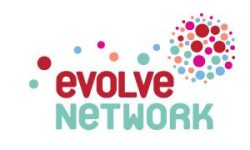In a dynamic and fast paced business environment organisations need team members who embody the qualities of flexibility, adaptability and creativity. These people are willing to bring along their existing networks, put their personal stamp on their role and take ownership of their space. They will take calculated risks for the betterment of the organisation and value a good outcome over good perks.
These people embody an entrepreneurial mindset, and they aren’t easy to find and even less easy to engage in ‘a job’.
Having been self-employed for most of my working life having a ‘real job’ was certainly a shock to the system. It wasn’t the work aspect of the job that created the shock – any small business owner will tell you there is no real bundy clock checking in on their arrival and departure times. I could easily put away 50 hours (and the rest) while passionately working in my business.
So what was it that repelled me from the world of employment for such a long time?
It was the rules. Well, at least my perception of them.
I don’t do well with tight rule structures on the best of occasions, however the way I perceived the rules of employment certainly stifled any job offer that had come my way over the years, and there had been numerous. Until the right one came along.
What are the rules that I so vehemently avoided? Here are just a few:
- Work takes place between the hours of 9-5
- If one is not seen, they must not be working
- There is a set office to do work from and one must be there
- Work first, family second, life later
- One must diligently make time for water cooler chit chat or suffer the consequences
- That in somebody else’s business I’d have to work with people who I didn’t have the same moral standards I subscribe to
- I would have to subscribe to a cookie cutter identity to mold myself to the culture of the organisation
- Suck it up and tow the company line
- Side projects are off the table
- Visible actions and being busy holds more value than getting outcomes
And it continues… My perception of these rules wasn’t completely made up, I have actually experienced some degree of each of the above-mentioned points in past positions. Of course some times, in some cases, in some roles the points are relevant and necessary. But not always, and certainly not as an expectation if you hope to attract entrepreneurial staff to your team.
Enter the right job…
Being in a leadership position in the organisation certainly helps my levels of engagement. Early on in the role I determined we needed to cut through stereotypical images of the operational environment we were working in. No, we didn’t replace the office furniture with bean bags and start growing kale from the window sills. What we did was slowly and purposely started to move to what I describe as a more commercial organisational mindset – a mindset that encourages entrepreneurial behaviours, and people.
Yes, it’s a work in progress and YES I’ve made mistakes and will most likely continue to make them to some degree. However – in response to the abovementioned list here’s what’s evolving…
- People’s lives are taken into account; As the leader of the organisation and a mum, kid things come up in the calendar from time to time and same goes for the team – these things are a priority
- Our executives work across varied hours. Sometimes weekends, sometimes after hours – there is no need for our executives to work 9-5 and even for office bound admin staff there is room to move
- Yes, there is a set office for administration and that’s a good thing – however staff not involved in this area of the operation have no need to present to this location every moment of their working day. For me that would mean a 200km round trip each day – yes, that’s important for our team days – NO, there is no reason to drive that far to look at a computer screen
- Family first – wellbeing second – then work. It’s incredible how motivating this actually is
- Time is valued as an organisational asset
- Our organisational values and the values of the individuals within the organisation are foremost and respected
- The skills (and quirks) of individuals are valued and recognised as what creates a unique organisation
- There are goals, processes and reporting systems within these systems is room for discussion and healthy discourse
- Side projects are encouraged and the future plans of the whole team are regularly discussed and encouraged
- Outcomes for the community we serve are foremost
Now in this much more flexible work frame I am actually enjoying the notion of being an ’employee’ – I wonder, if your organisation could apply any tweaks from the comments above?
Do tell…




